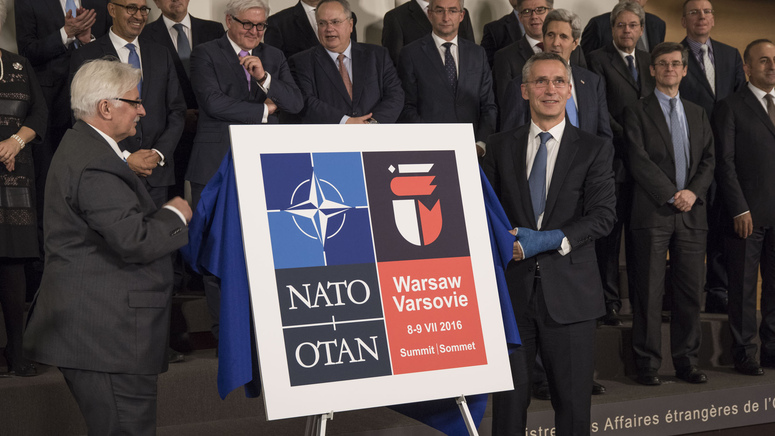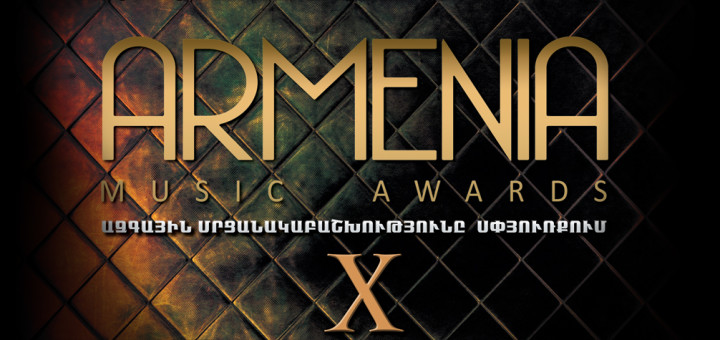
Due to their size and results, the clashes that began on 2 April 2016 between Armenia and Azerbaijan had a different character than the other crises that occurred since the cease-fire agreement signed in 1994. The clashes began in the late hours of April 1 and ended with the ceasefire signed in Moscow on April 5. As a result, the geopolitical conjuncture in the South Caucasus was shaken and the relations between Armenia and Azerbaijan have gained a new dimension. Analyzing these events only under the bilateral relations between Azerbaijan and Armenia in the context of a globalized world would be incomplete. Karabakh remains a source of problem between Armenia and Azerbaijan, but it is also a theater for a struggle of interests between Turkey, Russia, the EU, the US and Iran. The conflict, now referred as the “4 Day War”,[1] has led to a propaganda war in the media. Media organs, influenced by the social structures of their countries and the policies and missions implemented by their governments, have interpreted the “4 Day War” in various ways.
France is known for its close relations with Armenia and is also one of the three co-chairs of the Organization for Security and co-operation in Europe’s (OSCE) Minsk Group. The French national media gave extensive coverage to the 4 Day War. The way the French media presented 4 Day War shows the French government’s policy regarding the South Caucasus and sheds light on the French general public’s opinion on the developments in this region.
Journalists of Armenian origin or journalists who have embraced Armenian views attached great importance to the 4 Day War and most of their articles on this topic were against Azerbaijan. In this context, the newspaper Le Monde published an article written by the ex-editor of the France Arménie magazine Mihran Amtablian, which summarized the view of the events by the Armenian diaspora. The article highlights the following key points:[2]
Azerbaijan’s offensive over Karabakh between the 2nd and 5th of April was unsuccessful. Russia’s pressure ended these events. Karabakh is not only a territorial struggle between Azerbaijan and Armenia. The origins of the problems run much deeper. The South Caucasus region is a part of the disintegrated Union of Soviet Socialist Republics. In 1921, Stalin insured his own hegemony by dividing people’s unity and binding the Karabakh region to the state of Socialist Azerbaijan. Stalin’s decision was recognized as a very serious injustice by Armenians. This event can be compared with the French sentiment felt by the loss of the regions of Alsace and Lorraine to Germany after the defeat of Sedan.
During the communist period, the "International Brotherhood" principle which was put forward by the Soviet Union failed to prevent the exclusion of the Armenians in Karabakh. The hostility and hatred toward Armenians started by Turks was also continued by Azeris throughout the Soviet period. In 1969, President Ilham Aliyev's father Heydar Aliev was at the head of KGB and also the country. In Azerbaijan, as in Al Asad family in Syria, it is possible to indicate that there is a political understanding where political power is passed on from father to son.
After the collapse of the Soviet Union, under the understanding of a Common Turkish Nationalism between Turkey and Central Asian countries, there was a desire to unite in an ethnically homogenous way the Turkish-origin peoples from Bishkek (Kyrgyzstan) to Istanbul. The existence of Armenia and Armenians was seen as the main obstacle to this ethnic integration. Today, in addition to Armenians, Kurds also constitute an obstacle to such an integration. In 1915, the Turks resorted to genocide in order to get rid of the Armenian obstacle. Today, they repress with violence the creation of the state of “Kurdistan”.
During the war, which has begun to be called as the "4 Day War, Turkey was the one who encouraged Azerbaijan to use violence. As AFP has also confirmed, Prime Minister of Turkey Ahmet Davutoglu stated that Turkey will be by Azerbaijan’s side until "judgment day". Like “Kemal”, “Erdoğan’s” main obsession is to destroy the Armenians.
The returning of Karabakh to Azerbaijan is the first phase of the eradication plan towards Armenia. Azerbaijan has reported that, in addition to Karabakh, it also demands the Zengezur region.
The return of Karabakh to Azerbaijan means the death sentence of the people in the region. It is impossible for the people of the region to live under the rule of Azerbaijan. In that context, the Armenians in Karabakh did the only thing they could have done: just like Azerbaijan who used the right of “self-determination” (as stipulated in Article 2 of the Constitution of The Soviet Union) to get its independence, Karabakh declared its independence according to the same principal.
Since its victory in 1994, Karabakh has become a country with a full-fledged rule of law, a pluralist political regime and a true freedom of expression and press.
However, the OSCE Minsk Group responsible for finding a solution to the problem has been content with only repeating the Madrid principles. Yet these principles are contradictory. According to the right of self-determination, Azerbaijan should accept the existing borders and Karabakh’s independence. On the other hand, by transgressing the right of self-determination and applying the principal of “territorial integrity”, Karabakh will be returned to Azerbaijan. According to international law, "the right to self-determination" principle" has precedence over the principal of "territorial integrity” policy. Kosovo is a concrete example for this.
As long as these two concepts are seen as being equals, the discussions on Karabakh will not yield a result. The fact that 22 years has passed since the ceasefire and that the no resolution has achieved can be explained in this context.
Azerbaijan’s desire to get back Karabakh in the same way which it has lost it, through armed force, transgresses the third Madrid principle, which is “non-violence”. The events that accrued in April 2016 are the proof that Azerbaijan does not and will not respect this principal.
OSCE Minsk group is not working towards to resolving the Karabakh conflict, but to maintaining the status quo that is in favor of the dominant states in the region. In this regard, France, like the US and Russia, without taking under account the principal of “self-determination”, betrays Karabakh and democracy by aligning with the dictatorships in Ankara and Baku.
Mihran Amtablian attributes all the responsibility of the conflict to Turkey and Azerbaijan without taking under account Azerbaijan’s rights, OSCE’s principals[3] or the four resolutions[4] taken against Armenia by the United Nations Security Council (UNSC). The publication of such an article in a respected and leading newspaper like Le Monde shows the level of influence of the Armenian diaspora in France.
French politician’s initiatives on the Karabakh issue have also been widely covered in the media.[5] Published in the Liberation newspaper, 30 French deputies appealed to their government, stating that: “France must take action for peace in Karabakh”. Since 2001, on issues related to Armenians, the French parliament has always passed resolutions against the interests of Turkey. Within this framework, it will be useful to examine the French politicians’ position and their views on the Karabakh issue, and the repercussions of these on the French press. The appeal mentioned above can be summed up as follows:
Azerbaijan is responsible for the war environment going on for the last 20 years in the South Caucasus. On the 1 April 2016, Azerbaijan again violated the Karabakh’s borders and security. Azerbaijan dangerously armed itself with its income from its natural resources. Azerbaijan's defense budget is more than Armenia's total budget. The case of Ramil Safarov can illustrate this extreme mindset. During a NATO meeting in Hungary in 2004, Azeri soldier Ramil Safarov killed an Armenian colleague with an axe and was sentenced to life imprisonment in Hungary. In 2012, Ramil Safarov was returned to Azerbaijan. There, he was pardoned and declared a national hero.
The recent events in Karabakh should be seen as a step towards war, rather than a new dimension of the conflict. In this context, France should engage in more effective initiatives in order to ensure peace.
For Armenians, throughout history, France has been a country in which they sought refuge. By still denying the "Armenian genocide", Turkey is leading to the creation of hatred against Armenians. Turkey also caused in 1988 the slaughter of thousands of Armenians who were defending their country in Azerbaijan. France, because of its historical closeness with Armenians, should not remain silent to potential war crimes towards Armenians. As co-chair of the OSCE Minsk group, France should not allow the efforts for reconciliation to be wasted due to the outbreak of new clashes.
First, an investigation within the framework of the Minsk Group should be launched to determine the side that violated the cease-fire. Armenia, even when the Azerbaijani armies were routed, did not carry the intention to take over more land than what was essential to ensure its own existence. If France, in accordance with its principals, wants to discourage Azerbaijan from its war mentality, it must take stronger measures. French authorities should notify Azerbaijan that it will unilaterally recognize the state of Karabakh if Azerbaijan restarts the conflict. This (the recognition of Karabakh) is inevitable in order to bring peace in the region and to spare both the Armenian and the Azeri populations from the ramifications of the Turkish-Russian relations that are poisoning the region. Thus, it will be shown that the developing economic relations between France and Azerbaijan will not be established in the detriment of peace and the principle of self-determination.
As for the French parliamentarian Valerie Boyer,[6] she requested that France officially recognize the Armenian administration in Karabakh as a state.[7] Holding Azerbaijan responsible for the recent clashes, Boyer asserted that Azerbaijan is a dictatorship murdering civilians, just like in 1990 when “the Armenian massacres already bloodied Azerbaijan’s hands”. According to Boyer, “dictatorships” such as Azerbaijan do not know any other ways than violence, while on the other hand, the “state” of Karabakh is persuing its democratic developments, but that Azerbaijan is drowning in its own dictatorship. Boyer underlines that in order to ensure peace in the Caucasus, the official recognition of Karabakh is a must.
As can be seen, the French media has given a wide coverage to the comments against Azerbaijan. These comments do not mention either Azerbaijan’s rights on Karabakh or its suffering and losses accrued during this process. It has been completely ignored that twenty percent of Azerbaijani territory is under Armenian occupation.
In the framework of exploiting their sense of victimhood,[8] by stating that they were massacred in the past by Turks and Azerbaijanis, Armenians allege that they are once again facing the same threat, attempt to glorify the Armenian administration in Karabakh that is not recognized by any party, and make calls for Karabakh to be recognized as a state despite it being legally a territory of Azerbaijan that is under occupation. Meanwhile, Armenia does not comply with the UNSC or OSCE Minsk Group resolutions.
The French media also presented the problem of Karabakh as the result of the struggle for influence between Turkey and Russia. France 24 news reflected the events in the following way:
Azerbaijan and Armenia have blamed each other for the outbreak of the clashes. 22 years ago, Armenia was the winning side of the Karabakh war, as such, it would not be in its interests for the war to start again. On the other hand, an Azerbaijani military offensive could lead to a Russian military intervention. Why then did the clashes resume?
According to Thornike-Gorbadge, the reemergence of the clashes is the repercussion of the current arm wrestling between Turkey and Russia. As is known, the relations between Ankara and Moscow have taken a heavy blow when Turkey shot down a Russian aircraft in November.
The world's longest pipeline (TANAP), which will meet Europe's gas needs and connect Azerbaijan to Europe is currently being built. This project will create a competitor, an alternative to Russia in the energy sector. If Russia destabilizes the Caucasus region, Europe will be forced to give up this corridor. Russia is historically an ally of Armenia and has two military bases in Armenia. But on the other hand, Russia desires to establish closer relations with Azerbaijan. As it is known, Russia is Azerbaijan's most important arms supplier.
On the other hand, Turkey seeks Azerbaijan to attack Karabakh in order to cool the relations between Baku and Moscow. Turkey's President Recep Tayyip Erdoğan statement that "There is no doubt that Karabakh will one day return to its real owner" on the 4 April can be interpreted in this way.[9] İlham Aliyev is seen by Moscow as a factor that will hinder the development of radical Islamic movements. In this context, it would be against the interests of Russia to spoil its relations with this secular-minded country with a communist past. A potential war would leave Russia in a difficult situation, however Russia remains capable of maintaining the minimum balance required to ensure its influence in the South Caucasus.[10]
The status quo imposed by Russia in the Karabakh conflict allows it to apply pressure on both Azerbaijan and Armenia. Russian Prime Minister Dimitri Medvedev, in order to justify Russia’s arms sales, expressed during an interview with the television channel “Rossia 1” that “If Russia gives up this role, the place will not remain empty, they will buy weapons from other countries, which will destroy the existing balance.”[11] Meanwhile, Azerbaijan’s President Aliyev declared that it is his desire to solve the Karabakh issue in a peaceful way, but having stated that, he added that Azerbaijan had the intention to strengthen its army. This statement was obviously to the liking of Russia.[12]
In analyzing the clashes that started in April, it is important to pay close attention to who started the clashes, who benefits the most from a resolution of the problem between Armenia and Azerbaijan, and what Russia's politics concerning the region are. It is also important to recognize the reactions Russia has had to the international efforts in resolving Armenia's current troubles. Furthermore, we must also keep in mind that 20% of Azerbaijani territory is currently under Armenian occupation.
The fall of energy prices and the sanctions imposed on Russia because of its policies regarding Crimea and East Ukraine have negatively affected the economy of Russia. The actions taken by Russia together with Iran in Syria for various reasons, the state of its relations with Turkey, and the inauguration of the Trans-Anatolian gas pipeline project (TANAP) must be taken into account in addressing Russia’s claims at the global level.
Furthermore, in analyzing the developments in the region, the passive stance displayed by the United States in the Middle East should also be borne in mind. The Obama Doctrine, unlike his predecessor Bush’s notion of foreign policy, has resulted in the United States not being in the forefront in the Middle East. As a result, the Obama Doctrine provided Russia the opportunity to increase its influence in the Middle East through Syria.
The French media and French political circles are under the influence of the Armenian diaspora. This influence leads to them having a one-sided mindset that is in denial of the facts at hand, which in turn creates a misleading perception regarding the already complicated Karabakh issue. In addition to this, it is a known fact that the disastrous economic conditions of Armenia persists and the country is increasingly sliding into Russia’s sphere of influence in every field (military, political and economic). The fact that the recent developments in the region resulted in Russia’s increased military deployment in Armenia is a clear demonstration of this situation. French political circles and media who talk about the historical French-Armenia friendship are, with their unrealistic and almost imaginary analyses, creating disinformation about the Nagorno-Karabakh issue and the state in which Armenia is in. By doing so, they are preventing a realistic understanding of the negative developments in Armenia and making the resolution of the Karabakh issue more difficult than it already is.
*photo: europe1.fr/
[1] Turgut Kerem Tuncel, “A short assessment of the “4-Day War” in Karabakh”, AVİM,
http://avim.org.tr/en/Yorum/A-SHORT-ASSESSMENT-OF-THE-4-DAY-WAR-IN-KARABAKH.
[2] Mihran Amtablian, “Haut Karabakh: il faut une solution et non un statu quo”, Le Monde, http://www.lemonde.fr/idees/article/2016/04/11/haut-karabakh-il-faut-une-solution-et-non-un-statu-quo_4900032_3232.html
[3] OSCE Minsk Group announced in November 2007 the principles Madrid Principles for the settlement of the Nagorno-Karabakh process as follows:
- Return of the territories surrounding Nagorno-Karabakh to Azerbaijani control
- An interim status for Nagorno-Karabakh providing guarantees for security and self-governance
- A corridor linking Armenia to Nagorno-Karabakh
- Future determination of the final legal status of Nagorno-Karabakh through a legally binding expression of will
- The right of all internally displaced persons and refugees to return to their former places of residence
- International security guarantees that would include a peacekeeping operation.
[4] UN Security Council, recognizing that Azerbaijani lands were being occupied by Armenia, adopted four resolutions that determined this invasion. According to the resolutions 822, 853, 874and 884:
- Noting that there is ongoing conflict between Azerbaijan and Armenia in Nagorno-Karabakh and its surrounding which is part of Azerbaijan and the Republic of Azerbaijan because of its occupation.
- Noting that, within the Republic of Azerbaijan, due to the conflicts, many civilians had to emigrate.
- The sovereignty and territorial integrity of Azerbaijan and other countries in the region are emphasized.
- The inviolability of international borders and the inadmissibility of obtaining lands by force is pointed out.
[5] “La France doit agir pour la paix au Haut-Karabakh”, Libération, http://www.liberation.fr/debats/2016/04/12/la-france-doit-agir-pour-la-paix-au-haut-karabakh_1445683
[6] She is a member of the French parliament who submitted a bill that was accepted by the parliament, but did not come into force because it was found to be “unconstitutional” by the French Constitutional Council. The aforementioned bill foresaw a one-year-prison sentence and/or a fine of 45,000 Euros for those who “deny, humiliate or trivialize” the existence of the “Armenian Genocide” in the context of “Denial Law”. http://www.assemblee-nationale.fr/13/propositions/pion3842.asp
[7] Valérie Boyer (LR), "Il faut désormais reconnaître le Haut-Karabagh", Valeurs Actuelles, http://www.valeursactuelles.com/politique/valerie-boyer-lr-il-faut-desormais-reconnaitre-le-haut-karabagh-60727
[8] Osman Gün, “Ermeni iddialarının ve Türklere karşı önyargılarının günümüzdeki kaynakları”, AVİM, http://avim.org.tr/tr/Yorum/ERMENI-IDDIALARININ-VE-TURKLERE-KARSI-ONYARGILARININ-GUNUMUZDEKI-KAYNAKLARI
[9] Veronika Dorman, “Le Haut-Karabakh, un conflit gelé qui se réchauffe dangereusement”, Libération, http://www.liberation.fr/planete/2016/04/03/le-haut-karabakh-un-conflit-gele-qui-se-rechauffe-dangereusement_1443593
[10] Jean de Gliniasky, “Affrontements au Haut-Karabakh: vers une réactivation du conflit Arménie/Azerbaïdjan?”, IRIS, http://www.iris-france.org/74821-affrontements-au-haut-karabakh-vers-une-reactivation-du-conflit-armenieazerbaidjan/
[11] Karen Minasyan, “L'Arménie et l'Azerbaïdjan s'accusent mutuellement de bombardements malgré le cessez-le-feu.”, L’express, http://www.lexpress.fr/actualites/1/monde/l-armenie-et-l-azerbaidjan-s-accusent-mutuellement-de-bombardements-malgre-le-cessez-le-feu_1781130.html
[12] Jean de Dieu, “Haut-Karabakh: l'Arménie se déclare prête à accorder une aide militaire directe”, MirastNews, http://www.mirastnews.com/2016/04/haut-karabakh-l-armenie-accordera-une-aide-militaire-directe-armenie-ankara-soutient-les-actions-militaires-de-bakou-dans-le-haut-ka?utm_source=flux&utm_medium=flux-rss&utm_campaign=politics
© 2009-2025 Center for Eurasian Studies (AVİM) All Rights Reserved
No comments yet.
-
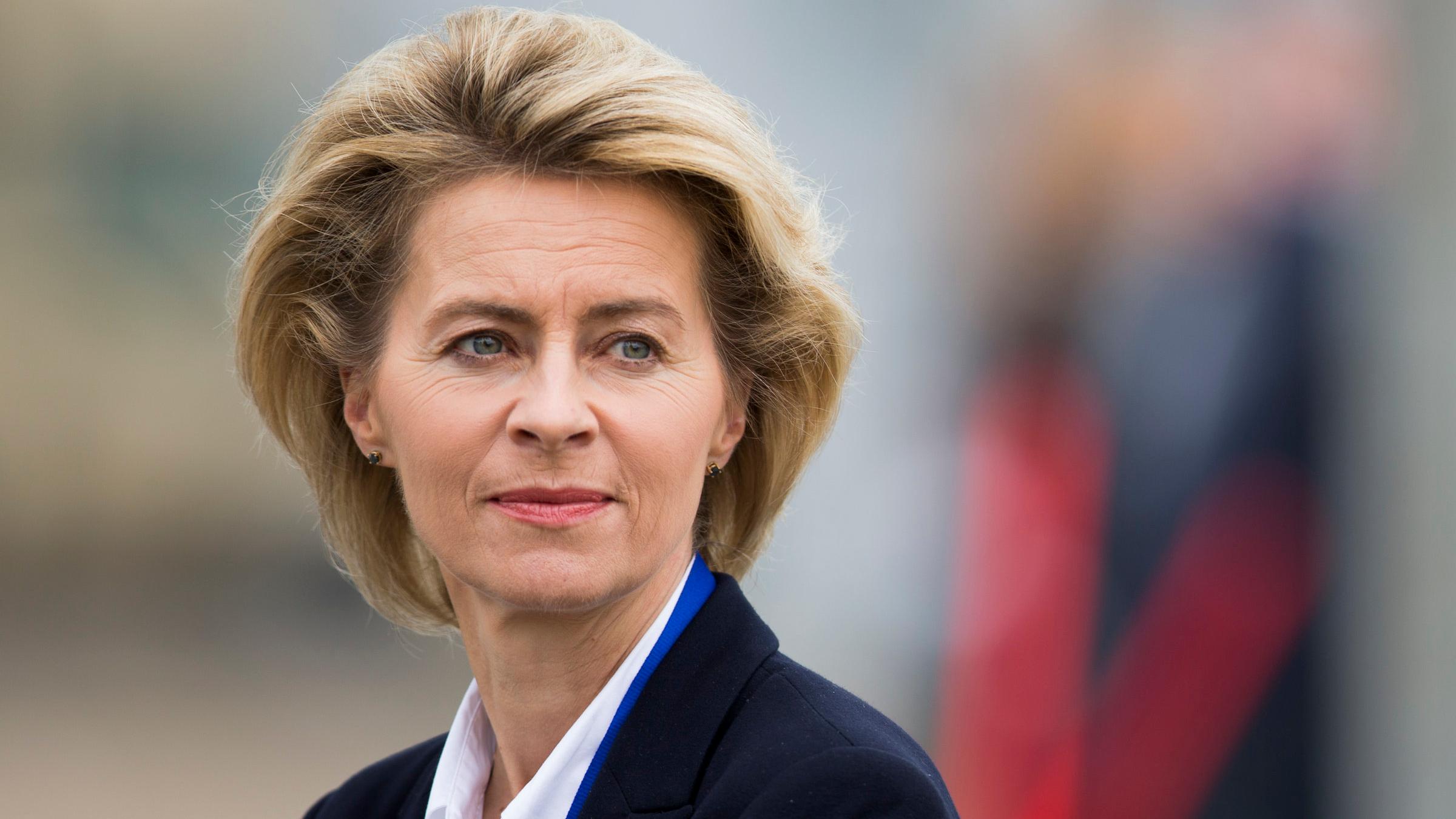 EUROPEAN COMMISSION PRESIDENT DISREGARDS DIPLOMATIC COURTESY
EUROPEAN COMMISSION PRESIDENT DISREGARDS DIPLOMATIC COURTESY
Hazel ÇAĞAN ELBİR 27.07.2021 -
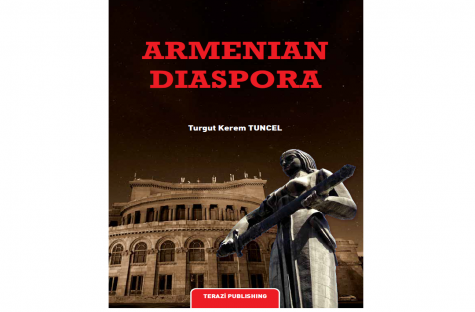 A NEW PUBLICATION BY AVIM: ARMENIAN DIASPORA
A NEW PUBLICATION BY AVIM: ARMENIAN DIASPORA
AVİM 07.01.2015 -
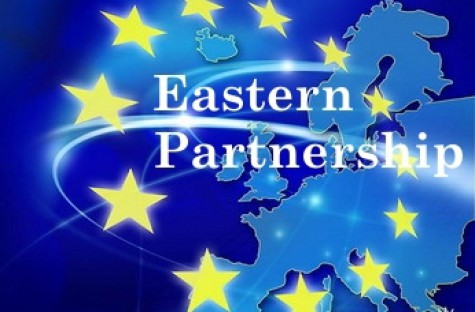 EUROPEAN UNION EASTERN PARTNERSHIP POLICY AND RUSSIA’S INCREASING INFLUENCE
EUROPEAN UNION EASTERN PARTNERSHIP POLICY AND RUSSIA’S INCREASING INFLUENCE
Özge Nur ÖĞÜTCÜ 13.03.2014 -
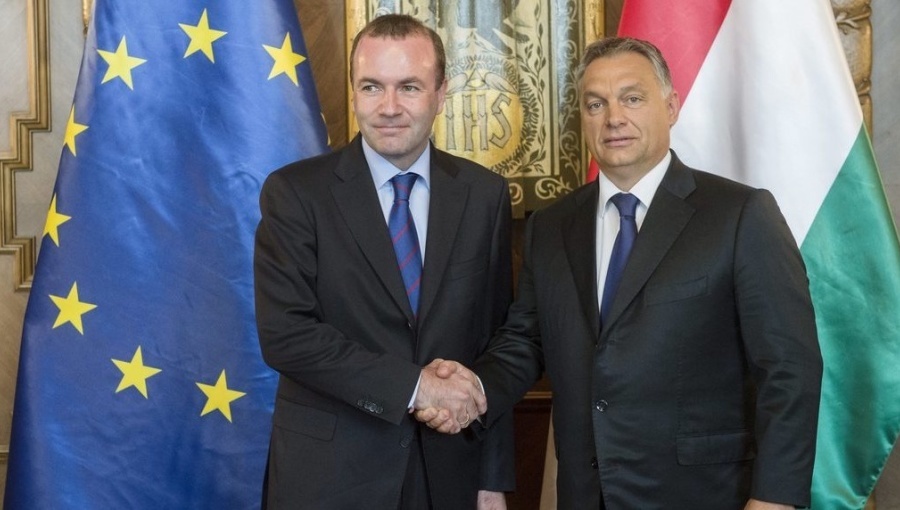 ORBAN AND WEBER CAME TOGETHER IN BUDAPEST
ORBAN AND WEBER CAME TOGETHER IN BUDAPEST
Hazel ÇAĞAN ELBİR 19.03.2019 -
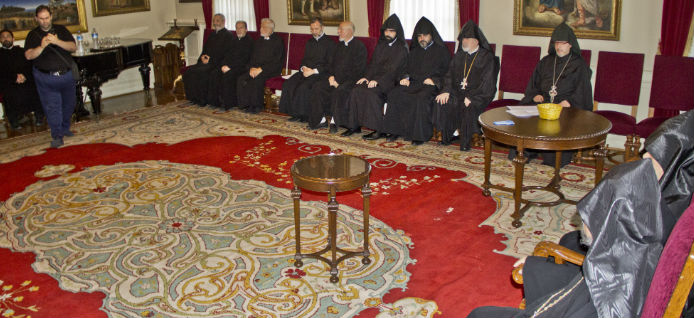 CONCERNS OVER THE PATRIARCH ELECTION – II
CONCERNS OVER THE PATRIARCH ELECTION – II
AVİM 08.08.2017
-
25.01.2016
THE ARMENIAN QUESTION - BASIC KNOWLEDGE AND DOCUMENTATION -
12.06.2024
THE TRUTH WILL OUT -
27.03.2023
RADİKAL ERMENİ UNSURLARCA GERÇEKLEŞTİRİLEN MEZALİMLER VE VANDALİZM -
17.03.2023
PATRIOTISM PERVERTED -
23.02.2023
MEN ARE LIKE THAT -
03.02.2023
BAKÜ-TİFLİS-CEYHAN BORU HATTININ YAŞANAN TARİHİ -
16.12.2022
INTERNATIONAL SCHOLARS ON THE EVENTS OF 1915 -
07.12.2022
FAKE PHOTOS AND THE ARMENIAN PROPAGANDA -
07.12.2022
ERMENİ PROPAGANDASI VE SAHTE RESİMLER -
01.01.2022
A Letter From Japan - Strategically Mum: The Silence of the Armenians -
01.01.2022
Japonya'dan Bir Mektup - Stratejik Suskunluk: Ermenilerin Sessizliği -
03.06.2020
Anastas Mikoyan: Confessions of an Armenian Bolshevik -
08.04.2020
Sovyet Sonrası Ukrayna’da Devlet, Toplum ve Siyaset - Değişen Dinamikler, Dönüşen Kimlikler -
12.06.2018
Ermeni Sorunuyla İlgili İngiliz Belgeleri (1912-1923) - British Documents on Armenian Question (1912-1923) -
02.12.2016
Turkish-Russian Academics: A Historical Study on the Caucasus -
01.07.2016
Gürcistan'daki Müslüman Topluluklar: Azınlık Hakları, Kimlik, Siyaset -
10.03.2016
Armenian Diaspora: Diaspora, State and the Imagination of the Republic of Armenia -
24.01.2016
ERMENİ SORUNU - TEMEL BİLGİ VE BELGELER (2. BASKI)
-
AVİM Conference Hall 24.01.2023
CONFERENCE TITLED “HUNGARY’S PERSPECTIVES ON THE TURKIC WORLD"

